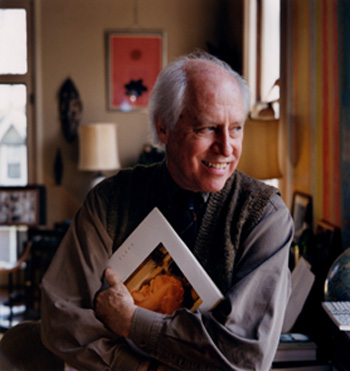New Theory on Sleep, Dreams and Consciousness Discussed at TCD
Posted on: 01 April 2010
Professor John Allan Hobson, Professor of Psychiatry at Harvard Medical School, introduced his new theory of dream consciousness at a recent talk in Trinity College hosted by the Dublin University Neuroscience Society and the Trinity College Institute of Neuroscience. The lecture was run as part of Trinity College’s involvement in International Brain Awareness Week.
In his talk, Professor Hobson explained that since the discovery of Rapid Eye Movement (REM) sleep, a normal stage of sleep characterised by the rapid movement of eyes, the neural underpinnings of dreaming have become increasingly well understood. To complement the details of these brain mechanisms, Professor Hobson proposes a theory of consciousness that is derived from the study of dreaming. This theory suggests that REM sleep may constitute a proto-conscious state, providing us with a virtual reality model of the world that is of functional use to the development and maintenance of waking consciousness. This hypothesis, which has its grounds in neuroscience and was published recently in the leading international journal Nature Reviews Neuroscience, therefore maintains that the development and maintenance of waking consciousness and other brain functions depends on brain activity during sleep.

Professor John Allan Hobson, Professor of Psychiatry, Emeritus, at Harvard Medical School, and at the Beth Israel Deaconess Medical Centre.
Neuroscience is one of the major research strengths of Trinity College Dublin. The Trinity College Institute of Neuroscience (TCIN) is the only dedicated research centre in neuroscience on the island of Ireland. The Dublin University Neuroscience Society (NeuroSoc) is run primarily by postgraduate students in TCIN who organise a diverse schedule of talks and seminars featuring both Irish and international neuroscientists.
